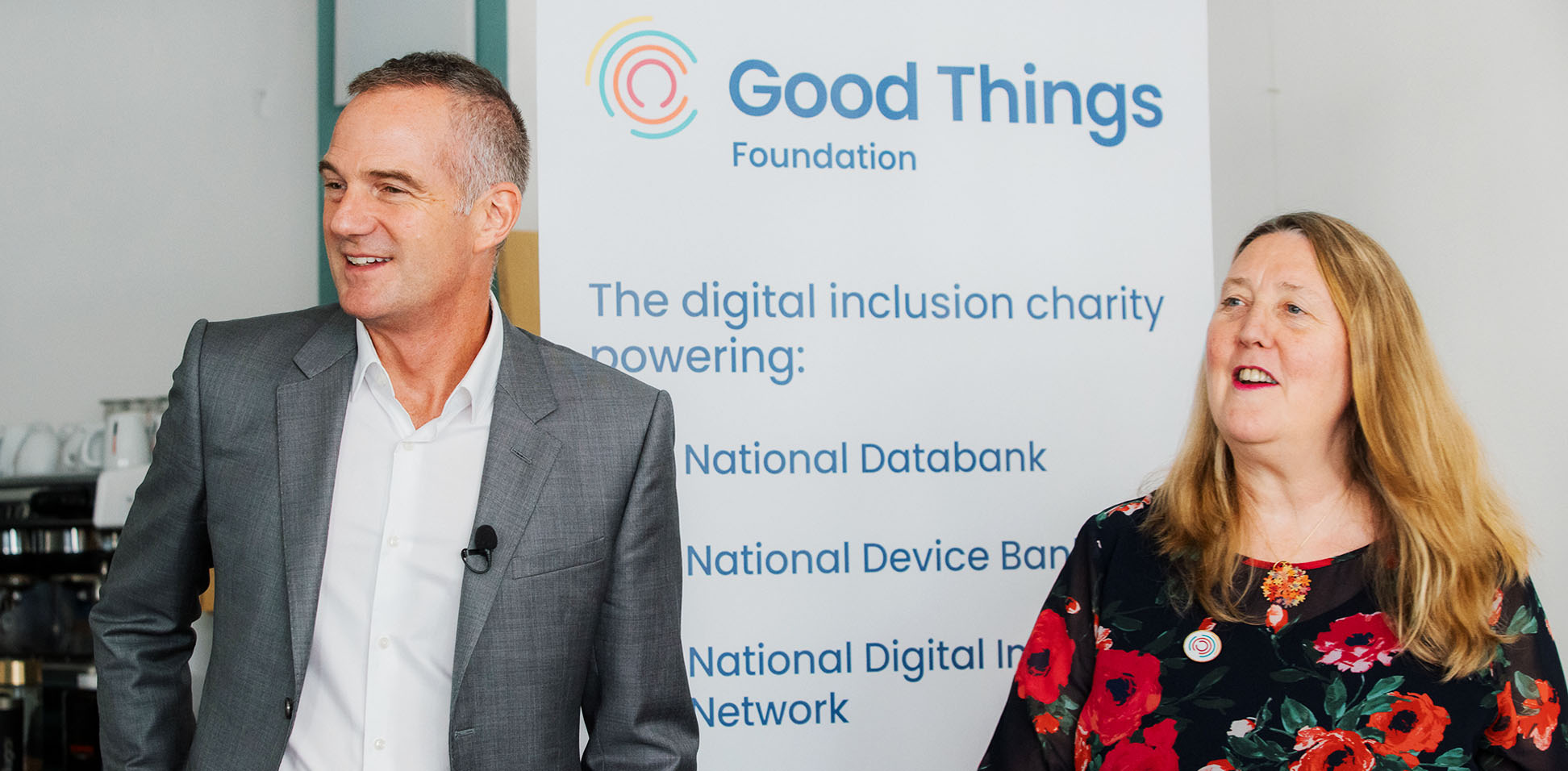More than warm words on digital inclusion: Our response to the ‘Invest’ Budget
Our Group CEO, Helen Milner OBE responds to the 2024 Autumn 'Invest' Budget.
It’s vital investment reaches those who need it
Amongst the tax rises, mega spending on the NHS, and the changes to the fiscal rules, today’s announcement that there will be millions available to help people get back to work and to improve public services through technology shows that the UK Government is committed to more than warm words on digital inclusion.
But it’s vital that investment reaches those who need it most - the people without very basic digital skills, laptops or connectivity, and the community organisations helping people get online.
Embracing the future: Improving public services
I am 100% behind the commitment to a new approach in improving public services through the use of technology that Rachel Reeves made today - making public services better for everyone. This includes moving the NHS into the digital age.
If you don’t know me you may be surprised that I’m a huge believer that the only way that we’re going to have better, and fairer, public services is by investing properly in the transformative use of technology. You may be surprised as Good Things’ partners in the National Digital Inclusion Network are those picking up the pieces for people who are failed by the implementation of digital services that make the wrong assumptions about their users and their users’ skills and access to the online world.
I believe that no-one should be left behind and that investment in technology is the only way in which we will drive better public services. Investment in a strategic approach to end digital exclusion will bring the benefits of digital transformation and ensure everyone who needs Government services can access and use them.
National Network for All
We need investment in a National Network for All: taking Government digital services to the people where they are, building on existing community infrastructure and providing excluded people with access and basic skills in community spaces. Through local trusted support alongside free connectivity offers, such as the National Databank, and free devices, such as from the National Device Bank, is what people need today and into the future until the digital divide is fixed. This is possible.
We need to build on what’s there - bottom-up, not top down to support an acceleration in the use of technology to deliver public services. This National Network for All, would ensure that people would no longer miss out on Doctor’s appointments, no longer miss out on job opportunities, and no longer suffer a two tier public service offer that excludes those who ‘have not’ got access and skills to use them.
For the future of work: Investing in pathways to work
The Chancellor committed to using technology more effectively and joining up across Government. This is the only way excluded people will get the public services they need. I’m looking forward to working with Ministers across health, employment and education on the Get Britain Working white paper, and working with the 16 trailblazer projects spending £240 million to support people who are currently ‘economically inactive’ to get back to work in a way that suits them as well as employers.
The investment in support for an increased minimum wage, long term unemployed and the health service is definitely good for the people we support, but I would have liked to have seen investment in the ABC to fix the digital divide - A - Affordable connectivity, B - Basic digital skills, and C - the Community support to help people to use the internet to improve their lives.
Ensuring no-one is left behind
"‘Invest, invest, invest’ is the resounding message from today’s Budget. Our research shows that investment of £1 billion could reap economic benefits of over £13 billion for the British economy. This is almost £10 return for every £1 invested. The new fiscal rules are a positive step, but it’s vital that investment grows the skills and connectivity for people currently left behind and cut off from online public services. We look forward to seeing investment is going to be targeted at the Government’s priority in digital inclusion. We know the businesses are ready to step up and co-invest.
On a personal note:
When I was a little girl in the 1970s I was interested in politics, but I didn’t believe that I could have the sort of job that people on the news had. There had never been a female prime minister nor a female chancellor; there weren’t many female role models visible to me. I want us all to be judged on what we say, what we do and how we behave not on our gender, but today I am so pleased that the little girls of the 2020s do have a role model in Rachel Reeves. Enabling and empowering all the children of today to become leaders for tomorrow will surely help us to have a stronger and fairer economy for everyone.


